To commemorate our centenary, we are delighted to present testimonials of former students and staff, recounting their memories. Please take a moment to find out more below.
Memories of former staff members
- John Yates, FREng – Ramsay Memorial Professor and Head of Department,
1996 – 2003 - "When I joined UCL in 1965 UK universities were entering a period of expansion following the Robbins Report into higher education. The academic staff of the Chemical Engineering Department comprised four engineers, three chemists and two biochemists most of whom had had industrial experience. The first-year intake was around 30, all male, the first female student not arriving until some five years later; the diploma course had about six students, research student numbers were few. The undergraduate degree was a three-year London University BSc (Eng). The first and second year teaching contained a lot of chemistry; Maths was taught by the Maths Department and thermodynamics by the Mechanical Engineers.
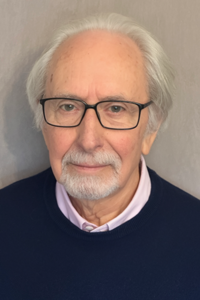
Chemical engineering teaching was slanted towards unit operations and relied heavily on Coulson and Richardson’s text. There were no optional courses and engineering drawing had to be passed before the degree could be awarded. Lab work featured prominently, the basement lab being given over to fairly routine unit ops experiments while the third floor was devoted to chemistry two afternoons a week during the first two years. The design project dominated the third year. Student’s extra-curricular needs/problems were catered for by the Departmental Tutor and it wasn’t until the mid-70’s that personal tutors were introduced.
During the following 50 or so years the academic subject broadened to include new areas again reflecting the expertise of the academic staff. Staff numbers have increased, research across the board has blossomed and undergraduate numbers have expanded greatly. The quality of the student intake is now as high as ever and over the years many of our graduates have gone on to stella careers in industry and the professions one even becoming, briefly, Chancellor of the Exchequer! The infant subject of biochemical engineering, nurtured in its early years in Chemical Engineering, has grown to maturity and now has its own UCL department.
Prior to 2021 there had been ten Ramsay Memorial Professors and Heads of Department (all male). We now have our first female Head, Eva Sorensen, who I took on to the staff as a young Lecturer in 1996. Eva and the Department have prospered since then. Here’s to the next 100 years."
- Larry Gibilaro – PhD, DSc (Eng), member of staff, 1970 – 1993
- "My first contact with chemical engineering at UCL was at a failed interview for undergraduate admission. After which I attended Battersea Polytechnic, emerging after four years to a foot into the prospect of a lifetime career in the chemical industry. But I retired hurt from all that after little more than three years and signed up for a PhD at Loughborough University. Surprisingly, this went well, leading to a lectureship there and later to my transfer in 1970 to chemical engineering at UCL. So I eventually got there, fifteen years after that initial rejection.
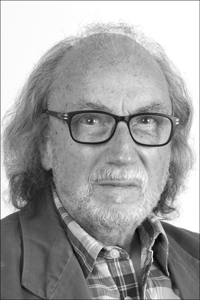
Early misgivings with this appointment concerned my suspicion that my role was seen as filling the need for a departmental guru for data processing and computation – a consequence of the computer having only recently supplanted the slide rule as the main hardware device for carrying out engineering calculations. This was land-of-the-blind territory for me, but it gave birth to an early initiative which I think back to with much pleasure and satisfaction. It involved persuading the department to dedicate a full week of the first undergraduate year to a crash course in Fortran programming, which I would organise with the help of postgraduate student volunteers and a teaching package I had managed to get hold of from the computer science people at Loughborough. Fortran was the foremost tool at the time for rendering computers accessible to the general scientific community. The course - a hectic, interactive affair - turned out to be a great success, providing the first year intake with computational skills they could draw on for the rest of their studies and thereafter.
My research at UCL was largely theoretical, in the fields of residence time distribution and, later, fluidization; it was progressing quite well. But after twenty years I was beginning to feel restless, and so took advantage of a government initiative promoting early retirement. Following this, I was offered a post at an Italian university with which I had been involved in collaborative research for some years; and from Italy I published three books – Fluidization-Dynamics and two novels: Serious Business and Holy Orders – all of which, to varying degrees, drew on my work and experiences at UCL."
- John Garside, CBE, FREng – BSc (Eng) and PhD, 1960 – 1966; then member of staff, 1969 – 1981
- "I applied for the 1960 entry to the undergraduate chemical engineering degree. At that time there was no UCAS, students made their applications to individual departments that were of interest. I was invited for an interview and, with some trepidation, found my way to the departmental office.
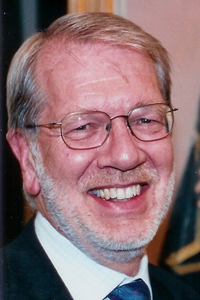
The department was then located adjacent to the present Students' Union at the junction of Gordon Street and Gower Place. The first person I met was Valerie Potter, then early in her long career as Departmental Secretary. Shown into the Head of Department's office I was faced with what I suspect was the entire teaching staff - Professor M B Donald, then Head of Department, John Mullin, John Barnard, Ken Ridgeway, Fife Webb and Hubert Thorp (I may have forgotten one or two!). I can see them now, ready to interrogate me as suitable, or not, for their degree course. I must have said the 'right' things since I was accepted onto the course, 18 of us in total with just one woman amongst us. After graduating I did a PhD with John Mullin and, after a few years with ICI, joined the department as a member of staff between 1969 and 1981. UCL and all it had to offer has meant something very special to me over the years."
Memories of past students
- Lara Santos-Bhowmik – MEng, 2018 – 2022
- "One of the reasons I decided to study chemical engineering at UCL was the versatility of the degree. Of course we studied everything we needed to become successful chemical engineers, but we also had many opportunities to broaden our expertise outside of the usual curriculum with dedicated modules and week-long projects with other engineering students who were part of the Integrated Engineering programme (IEP).
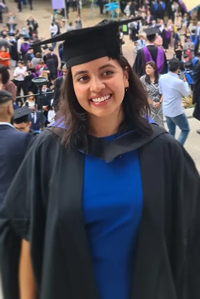
A favourite project of mine was simulating and building a small-scale reactor with students on the IEP, where I explored areas of engineering I would not have come across otherwise and worked in a team with people of different technical backgrounds, which I really enjoyed. The skills gained from that project (and the many others after that!) have allowed me to succeed in my current job for a global tech comms company. Due to everything I have learnt during my time at UCL’s Chemical Engineering department, I’ve gained the confidence to work in a new industry and learn new technologies which I may not have done otherwise, and I am extremely grateful for it!"
- Maria Kalli – MEng and PhD, 2014 – 2022
- "One of the many reasons I chose to study in UCL Chemical Engineering, was the IEP (Integrated Engineering programme). From Year 1, we got involved in multi-disciplinary projects and attempted to tackle real world problems with students from electrical, mechanical, civil, biochemical, and computer science departments.
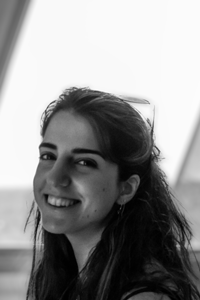
A standout moment was one of the one-week scenarios, when my team won a best video award related to water management and sustainability. During that week we were in the lab, assembling pumps and compressors in order to deepen our understanding of the operation and differences between each equipment. On that same week I had an interview, where at the start I was asked about my day. After I explained this unique and hands-on experience to the interviewer, he was impressed, and this gave me confidence to secure an internship at a global consultancy and construction firm in London."
- Honora Driscoll – MEng, 2017 – 2021
- "I enjoyed the challenge of my MEng Chemical Engineering degree at UCL, particularly the integrated projects which brought together the knowledge from all modules, such as process safety and economics, as well as the core chemical engineering modules of separation processes and chemical reaction engineering. This is reflective of real-world problems, which are complex and do not have prescribed answers.
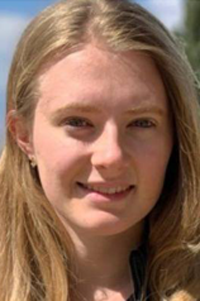
What was instilled in me at UCL was the vast scale of chemical production processes globally and the immense impact that chemical engineers can make, such as improving energy efficiency or engineering new ways to power chemical processes. For example, producing ammonia (a fertiliser, shipping fuel and hydrogen carrier) currently accounts for around 1% of the world’s CO2 emissions - the hydrogen input is produced via natural gas.
However, there is now a shift to electrifying ammonia production. If the energy input is renewable, the ammonia produced is called green ammonia. I’m currently reading for a DPhil (Ph.D.) in Engineering Science at the University of Oxford, on the topic of green ammonia. I am particularly grateful for the female academics at UCL, such as Professor Eva Sorensen, who were role models to me and encouraged me to pursue further education with a Ph.D."
- Eduardo Garciadiego-Ortega – PhD, 2015 – 2020
"I was a PhD student in Professor Angeli’s ThAMeS Multiphase group from 2015 to 2019. Afterwards, from 2019 to 2020 I was a teaching fellow in the process design modules for 3rd year undergrads and for MSc students.
I really liked my time at the department because I was doing advanced research into multiphase flows with mass transfer but also because of the staff and other students. It was a very friendly and multicultural environment with incredible technical expertise. I was always learning from my peers and the academics.
I was frequently involved in teaching in the labs to undergrads. The hours were long but it was a great experience to get to know other PhD students and the cohort of undergrads, some of which would stay to do PhDs in the department. I remember the department as a place to work very hard on very complicated problems with a friendly environment."
- Evita Roumpea – PhD, 2014 – 2018
"Regarding the department, I felt that I was part of an exciting and innovative environment. Being a member of a looking-forward research group, ThAMeS – The Advanced Multiphase Systems – led by Professor Panagiota Angeli, helped me to grow both personally and professionally and gave me all the skills and tools needed for my current industrial role in biotech."
- Martí Cortada – PhD, 2014 – 2018
"I really enjoyed my time at UCL. The group had the resources required to conduct research at the highest level. I appreciate very much the opportunities I had to disseminate my work in international conferences. It was exciting to be surrounded by bright people from so many places around the world, this is probably what I miss the most."
- Rashed Ahmad Sheikh – 2004 – 2016
"I have enjoyed my time with the Department of Chemical Engineering - being part of the centre definitely governed my decisions to make in my life and inspired me to make a difference to others. I would say everyone in the Department has inspired me in one way or another from the advice received, direction and general support towards my career."
- Mozhdeh Noorkami – BEng, MSc, MPhil, 2006 – 2014
- "Growing up, I always wanted to work in engineering. When I moved to the UK when I was 16, I attended a Women in Engineering summer school and at that point I set my goal to become a chemical engineer. My time in the Chemical Engineering Department at UCL spanned 2006-2014, where I studied for 3 degrees. It was one of the most memorable periods of my life; I had a chance to meet lots of people from many different backgrounds, and I made many lifelong friends during my time there. I really enjoyed my undergraduate degree, and the open and friendly teaching staff made the journey unforgettable. The location of the campus in central London made the experience even more remarkable and vibrant place to be.
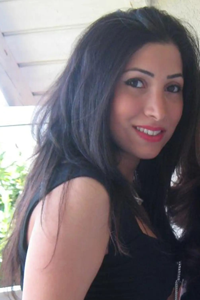
I believe the good name and reputation of UCL Chemical Engineering was an advantage in finding my first job. During my career in the chemical industry, I have used a lot of the knowledge I learnt during my degrees, and I have also built upon the fundamental skills for research and project management that were instilled in me at UCL. Last but not least, meeting my husband at UCL was the cherry on top of the cake."
- Sultan Al-Salem – PhD, 2008 – 2013
- "It was an honour and a true privilege to be part of the UCL family back in 2008, where I earned my PhD in Chemical Engineering from this prestigious school. UCL was always a top university ranked as one of the top ten worldwide, and it was a challenge on a personal level to attend and finish my course there. It was always my top choice to attend UCL and I have always wanted to be part of its alumni.
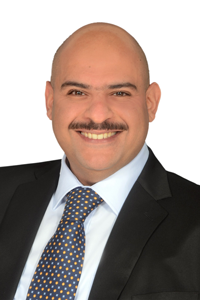
I do have lots of fond memories from my student days at UCL, and more so, I still cherish all of my personal and professional relationships that I established from my time at UCL. What I learned at UCL has opened to me lots of doors in my career and I wish to see the Department of Chemical Engineering prosper more and more in the years to come."
- Mohammed Buhassan – BEng, 2010 – 2013
- "Studying chemical engineering at UCL was a transformative experience that has shaped my life in countless ways. As we celebrate the Department’s Centenary, I am honoured to reflect on the invaluable learnings and memories it has bestowed upon me.
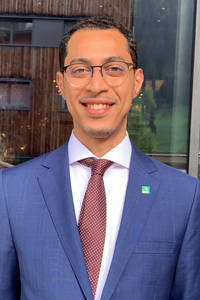
One of the most profound aspects of my time at UCL was the emphasis on holistic thinking, something intrinsic to chemical engineering. I still vividly remember the words of Dr. Tim Elson during our very first lecture: “chemical engineers are global engineers”, speaking to the essence of our discipline’s versatility. Truly, the education I received not only honed my technical skills but instilled in me a sense of broader perspective, equipping me with the tools to excel in multiple career roles and take on grand and complex challenges.
UCL is more than an academic institution; It is a global community that opens doors to the world. The diverse department body and international outlook broadened my horizons and enriched my understanding of different cultures and perspectives. I am forever grateful for the exceptional quality of education and the inspiring professors who guided me. Their expertise, dedication, and passion for chemical engineering left an indelible mark on my academic and professional journey.
As we celebrate a century of excellence, I proudly carry the Department’s legacy with me, cherishing the education, values, and sense of community that have been integral to my growth as a “global” engineer and citizen."
- Olufemi (Femi) Kadri – MSc, 2010 – 2011
"I studied in the department at the time that a lot of construction was happening on the UCL Campus and in the larger London area (as part of preparations for the 2012 Olympics). I decided on UCL because of its reputation and testimonials from friends who were alumni. I have many fun experiences ranging from juggling between grabbing coffee on the first floor of Roberts building to making it to Prof Sorensen's Process Control class, which were always early in the morning (Fun times!). Outside of the education and degree obtained from UCL, I had the chance to make friends with people from all over the world and I'm still friends with many of them today. Those are experiences and relationships I relish every day. I interacted with many fun students, staff, and faculty but Professor Alan Jones was quite an inspirational figure. His patience and simplicity despite his wealth of knowledge were qualities that stood out to me."
- Sarah Germanà – PhD, 2004 – 2008
"It was mid-April, I packed my luggage, a few books, and a bicycle. I left my parent’s house in Rome. A few days after my arrival I was sitting by the columns of the UCL Main Building. A PhD badge was hanging from my neck. I remember thinking to myself: ‘I’m sitting at the centre of what’s happening in the world.’ ‘I can contribute.’ I was right, my PhD at UCL Chemical Engineering Department was an extraordinary professional and personal experience.
Professionally, a degree from UCL allowed me to choose the career I wanted. I work in R&D and Marketing developing products that are touching people’s lives (FMCG and Medical Device industry). Cool, but technical expertise is not all I got! The PhD experience allowed me to develop the soft skills that make me successful as a human being and as a people and projects manager. I learned about myself, cultural differences, collaboration, public-speaking, research methodologies, project management. Spending days and nights in the lab with other students was an opportunity to establish friendships and to self-develop. Today my self-confidence at work comes also from the trust, respect, support, and challenges that the UCL staff and industrial sponsor offered me. At UCL I caught a contagious disease called passion for research which I’m using in different areas of my life. My research was awarded with the IChemE PTSG Young Researcher Award, and I was one of the founders of the UCL Enterprise Society. It is not only what you do, but how and with whom you do it."
- Neha Solanki – MEng with Study Abroad, 2004 – 2008
- "I recall the first day of my chemical engineering course where I got to meet my other classmates and saw that several of them were from the Year in Industry program that I had participated in. Those classmates became my closest friends during the course as well as after I graduated and I still keep in touch with them today. My time at UCL moulded me to who I am today both in class with teachers such Dr Eva Sorensen (who is now the department head!) as well as having my first experience in leadership roles through activities with the clubs and societies and having the opportunity to be the Ramsay Society President. I really appreciated the opportunity I got to study abroad in new York City as it gave me a chance to experience the education culture over there and learn from academics working in different technologie.
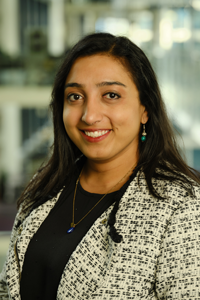
Ten years after graduating I got the chance to work with the UCL Chemical Engineering Department by joining the Industrial Advisory Board, which I saw as a way to give back to the department and also to see how much it has grown (and still growing) since I graduated. Thank you to everyone who was part of my journey when I was an undergraduate and am grateful for the ongoing relationship I have with the department today."
- Shaista Akhtar – BEng with Year in Industry, 2002 – 2006
- "I am thrilled to share my experiences and reflections as a graduate of the Department of Chemical Engineering at UCL, as well as the priceless opportunities and education I benefited from throughout my four years at the campus.
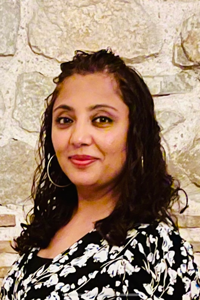
To put it mildly, my experience at UCL was transformational. I was immediately welcomed into a vibrant and intellectually fascinating community of researchers, professors, and chemical engineering students the instant I arrived on campus in September 2002. I was exposed to a wide variety of ideas and cultures at UCL, which helped me prepare to function well in a multinational setting.
I am currently working as Construction manager for Equinor’s modification projects in the North Sea. I have also worked as process optimization and process safety engineer for 10 years and applied the skills I acquired at UCL. Most importantly, this degree taught me critical thinking, problem solving and collaboration, something that is very vital in any field.
The benefits of a Chemical Engineering degree from UCL go far beyond a paycheck and a job title. You will get the ability to overcome any obstacle that life presents, you will make friends for life, and you will improve as a person."
- Paolo Pagliai – PhD, 2000 – 2005
"During the late 90s, in my years at uni, I used to frequently visit friends living in London, jumping on the first not so cheap flight as soon as I had the opportunity. Probably, those were the days when I fell in love with the city.
Soon after receiving my degree in Chemical Engineering in Italy, my work interests shifted onto the academic research. My thesis supervisor, a former UCL alumni himself, encouraged me to look for PhD opportunities within the Chemical Engineering Department at UCL by describing the quality of research, its facilities, the vibrant life in the campus and the support provided to the foreign students. Given the times, the process was fairly quick; in a couple of months, I was interviewed and offered to join the department on an industry sponsored research project.
It’s been a steep learning curve in the early days, but I instantly felt a mutual and shared path of growth within the academic community; in fact, life at the department became a substantial part of my life in London. Travelling the world to attend international conferences and receiving acknowledgements for a piece of research work are among the most rewarding things that will stay with me forever.
Equally important, it was the pulsating passion for solving scientific and technological challenges that is still inspiring and driving my professional career in R&D as a senior chemical engineer."
- Darren Gobby – MEng and PhD, 1993 – 2000
- "I was in the 1993 entry for Chemical Engineering. My decision was based on the facilities, location and (importantly) the friendly feeling that the department offered. I was not disappointed in my choice both from an academic and personal perspective (the friends I made at UCL are still friends today). Whilst still an undergraduate I remember David Bogle encouraging me to consider research. I was given the opportunity to start mathematical modelling as a 3rd year research project, which rolled into a summer project (1996) and resulted in me giving my first international conference talk (still as an undergraduate) in Trondheim (1997). This was a turning point in my career and I decided to pursue a PhD, where I focussed on reaction engineering with Professor Asterios Gavriilidis.
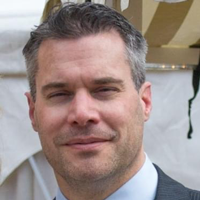
The skills gained through undergraduate and postgraduate study have provided a firm foundation for my subsequent professional career. After graduating I spent a few years at Harwell as a Computational Fluid Dynamics engineer before embarking on a career in process development/engineering at several ex-ICI companies in the Northeast of England. Currently I am leading a large manufacturing research group for a FTSE 100 speciality chemical company, where I am pleased to report that I still have strong links with the department."
- Rudi Zauner – PhD, 1996 – 1999
- "I very much enjoyed the multicultural environment at UCL, which was quite different to university life in my home country of Austria, where I did my undergraduate degree.
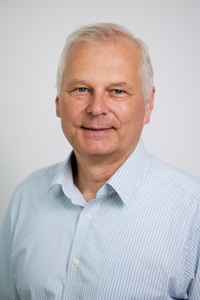
While doing my PhD in crystallisation, supervised by Professor Alan Jones, I felt humbled to meet Professor John Mullin, the godfather of crystallisation and former Head of the Department. This was definitely a highlight that I will never forget and I was able to get his book, the ‘bible’ of crystallisation, signed by him as well.
Studying abroad was such a positive experience for me that I decided to start my professional career abroad, first in Germany at BASF and then in the USA. I spent almost ten years abroad altogether before returning to Austria, where I’ve worked in renewable energies and hydrogen. I believe that my days at UCL not only prepared me for an international career but also led me to become more open-minded and confident."
- Michael Fildes – BEng, 1993 – 1998
- "After considering my options during the sixth form, I applied to all the usual Chemical Engineering Universities for my degree. However, it was whilst visiting UCL for interview that I really decided that this was my first choice. The relaxed and friendly atmosphere of the department, along with the location sold me. I spent the morning in the department for the interview and the afternoon exploring the west end and Covent Garden. I spent 4 happy years in the department, enjoying the course and making the most of the fantastic location. I made some lifelong friends and set myself up for a career in Chemical Engineering."
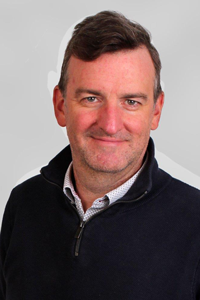
- Mark Christopher Newman – MEng with Study Abroad, 1992 – 1996
"My main memory [of the course] was that it was hard - much more difficult than business and finance that I later studied. Chemical Engineering was a difficult subject but prepared me very well for my career. It goes very deep but also provides breadth and concept of how it all fits in to the real world."
- Russell Smith – MEng with Study Abroad, 1990 – 1994
"In the early 90's the world was moving into the time of personal computers but the world-wide net was not yet born. I was attracted by the 5-Star award for the course - so the high quality of the course. I remember the large lecture theatre downstairs where we joined with other engineering courses to learn maths. I also remember the practical experiments we carried out in the basement. Approachable lecturers, students from around the world."
- Kevin Baker – BSc (Hons), 1978 – 1981
"A small ChemEng department headed by some notable faculty - Peter Rowe, John Garside, Alvin Nienow, Victor Long, Walther McCready, Malcom Lilley, and support staff led by Valerie Potter to name just a few. Being an engineer inside the multi-cultural, cosmopolitan culture of UCL was the main attraction of the department and turned out to be a tremendous growth experience. The blistering genius of Vic Long's thermodynamics courses, the hidden basement fluidization labs plus the standout Ramsay Dinners. What was inspiring were my fellow 'travel mates' on the course from all over the world, many of whom I still am in touch with today."
- Iain Macdonald – BSc (Hons), 1976 – 1979
"First and foremost, my time at UCL made great friendships, which have continued for more than 50 years now. On a personal level it also moved me from being a dependant pupil to being an active contributor with the confidence to influence projects (and life) around me."
- Ajit P. Yoganathan – BSc (Hons), 1970 – 1973
- "I attended UCL from 1970-73. We had a class size of about 35: all male, about one fifth from Commonwealth countries. Many of the staff had worked in industry and introduced those practical experiences into their lectures. London was an enjoyable city to live in, especially with the UCL halls of residence being close to the heart of the city.
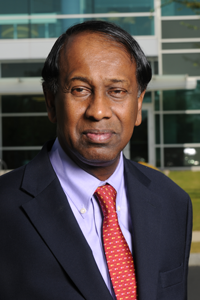
I graduated with First Class Honors and was awarded the Goldsmid Medal & Prize for the most distinguished performance at the final examinations in all branches of Engineering at UCL. I was attracted to UCL (while living in Colombo, Sri Lanka), because of its reputation as a leading university in engineering, science, medicine & liberal arts. During the 3 years, I enjoyed my interactions with fellow students and the staff, especially at the Ramsey Society social events. I was inspired by many of the faculty, especially my tutor Dr. John Garside and Professors John Mullin and Peter Rowe (head of department). They urged me to pursue a PhD which I did at the California Institute of Technology and helped launch my academic career of 40 plus years. To this day, I fondly reminisce about my days at UCL."
- Tom Radford – BSc (Eng), 1962 – 1965
"I joined the ChemEng department as it had just moved to the New Engineering Building in the last year of Professor Donalds’ tenure. It had only16 students. I had studied 3 A levels in one year at a technical college and as a result I was offered an unconditional place although my results were not that good. I saw UCL as a friendly organisation offering opportunities to meet a wide range of student from other disciplines. London was also an attraction which at the time was affordable. Famous pop groups such as Gerry and The Pacemakers and the Moody Blues appeared at UCL events.
I remember Lectures from Professor Donald about Cornish mines and the new approach to Fluid Dynamics from Alvin Neneuw which not to everyone’s liking. Dr Mullen was also an inspiration. The small numbers also meant we could have discussions with the lecturers over morning coffee. My time at UCL gave me a better outlook on the world in general and Chemical engineering gave me the skills and confidence to tackle the problems of the rapidly developing Petrol Chemical industry."
 Close
Close

